Mountain bikers often take for granted the fact that we’ll return safe and sane from our jaunts into the backcountryeven those that take us twenty miles or more from the nearest town or main road. I think we get this false sense of security from the fact that long distances can easily be covered on a bike in a matter of a few hours, as opposed to hiking or backpacking where the time involved reinforces the reality of the seclusion and distance from help should some unforeseen event occur. The truth is, the further you get from your car, a road or a town, the greater the likelihood youll end up spending the night in the woods if a serious injury or breakdown occurs. Traveling with the appropriate gear, however, greatly reduces not only the discomfort and danger inherent in an unplanned-for night in the woods, but also the chances of that ever happening in the first place.
There are, of course, vastly divergent philosophies regarding just how prepared for the unforeseen one should be when venturing into the wilds. When I go mountain biking, I tend to be well prepared. My level of preparedness is directly proportional to the distance from civilization I will be, as well as the likelihood of encountering low overnight temperatures and/or precipitation. Wet and cold conditions can lead to hypothermia, and hypothermia is the greatest real danger one faces in a temperate zone wilderness.
My checklist of emergency equipment and supplies includes:
- A warm fleece sweater and beanie
- A water-proof, packable jacket and pants
- Bicycle repair kit
- Emergency kit
- First-aid kit
- Map & compass
- Extra food
- Water filter/pump
- Headlamp
On a short trip near town in the summertime, I might only take a patch kit & tire pump. For a longer ride in the winter, I take everything on the list.
In addition to the gear I pack with me, I carefully consider what kind of clothing I wear when I go. Theres a saying among hikers and mountaineers: Cotton kills! Cotton, although very comfortable, is one of the hardest fabrics to dry out once it gets wet. As noted above, hypothermia is hands down the greatest threat to ones safety in the wilderness of the temperate zones; that includes most of the continental United States. The last thing you want when the sun is going down and the temperature is dropping is to find yourself wearing wet cotton clothing. Fortunately for us, there is now a wide variety of comfortable, fast-drying, moisture-wicking fabrics available at prices to fit almost any budget.
One of the items on the list above that few mountain bikers carry is a water filter/pump. Next to hypothermia, dehydration is probably the second greatest threat to a person stuck in the wilderness. In a true emergency, if I had no alternative, I would drink water from nearly any source. Barring such circumstances, however, Ill never again take so much as a sip from the clearest mountain stream. Several years ago I became violently ill from drinking what appeared to be clean, fresh water. The truth is that even the most pristine looking creek may be contaminated upstream with an animal carcass, feces, or other pollutant. Giardia and Cryptosporidium are the two leading illness-inducing microorganisms present in the water supplies of the US and Canada. Fortunately, these are easily removed from drinking water using any of the readily available filter/pumps on the market.
In terms of preparedness there is no substitute for knowing what to do in case of an emergency. All the gear in the world wont help you unless you know how to use it properly. Before travelling any significant distance from help in the wilderness, educate yourself on emergency and survival techniques.
Undoubtedly there are people out there reading this who think all this preparedness is overkill. I am the first to admit that I have seldom had to use the emergency gear I pack with me on my outings, and that it is somewhat of a burden to lug it around with me. However, the times I have had to use my water filter, or put on my water-proof layer due to an unexpected downpour have made it all worthwhile. Besides, 10 million Boy Scouts couldnt possibly be wrong every time they recite their motto: Be prepared. Could they?














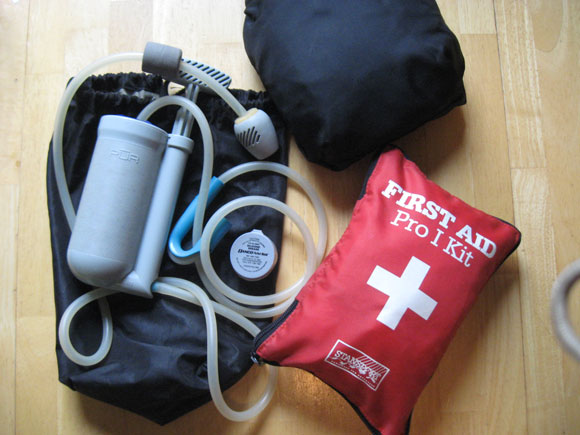


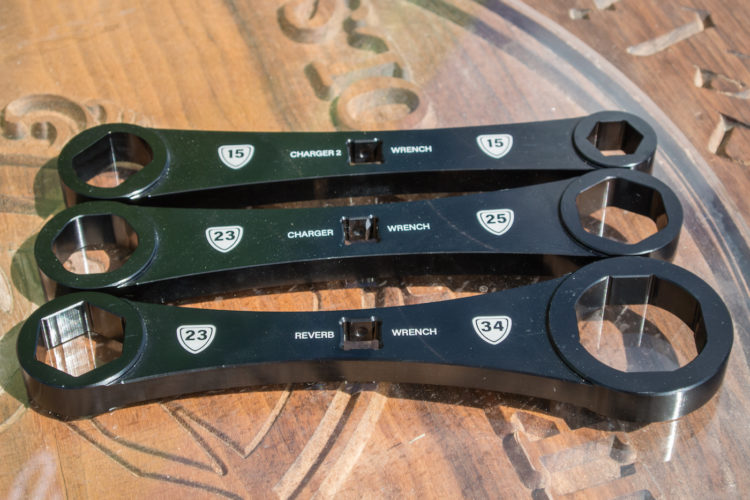


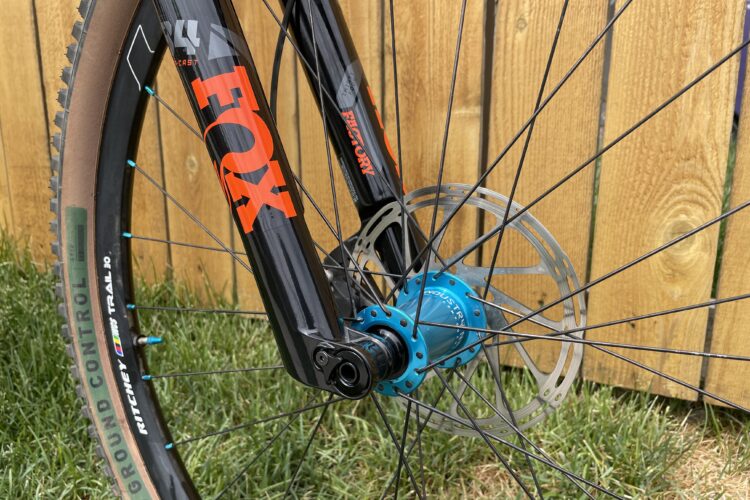
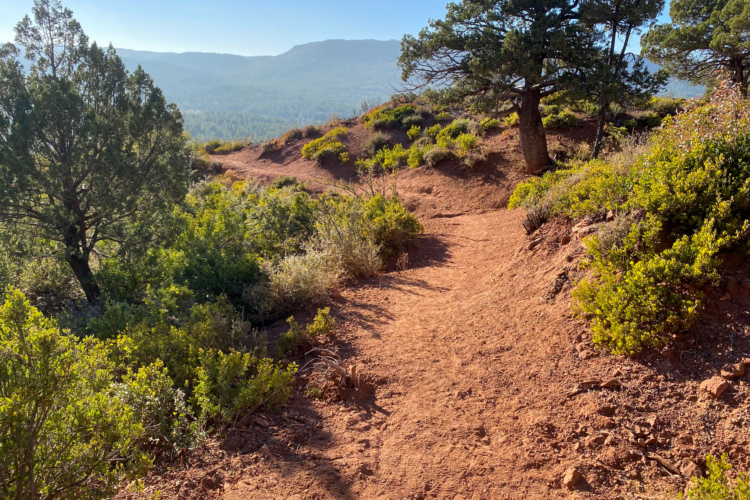
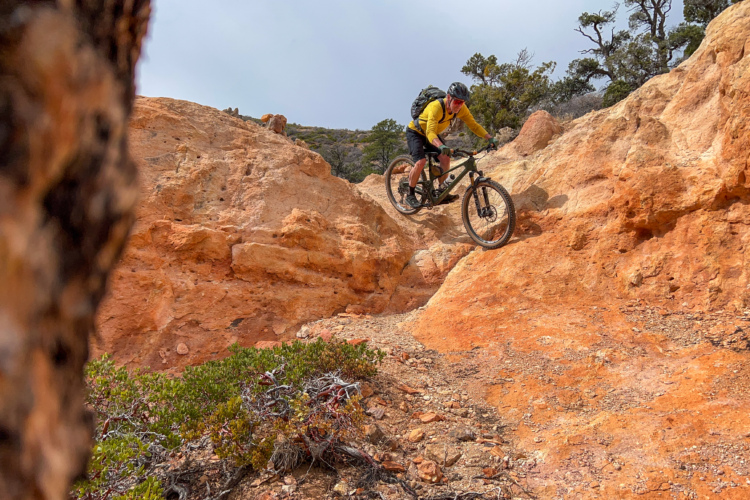


23 Comments
May 18, 2012
May 18, 2012
May 17, 2012
Surgical gloves take up no space.
Matches/firestarter flint.
A couple of spare spokes in the seat tube.
Chain links.
May 17, 2012
How about a write up on small water filters.
May 17, 2012
Water tablets: Be sure to allow the proper time to kill Cryptosporidium (maybe 4 hours), that is where a water filter is a little better. I carry Nuun to cover the iodine taste.
May 17, 2012
A couple of things I do which work for my situation in additon to extra gear/tools is that I'll text my wife as soon as I'm about to hit the trail. I text her "hey I'll be doing such and such trial, then head over to this trail, I'll text you when I get back to the car. So if for some reason she does not get that text a couple hours later she at least knows what area I was supposed to be in. Of course there will be times when you venture off somewhere else but it's just a small extra precaution I can take that could possibly help me out one day. I also ensure to have an ID card with me, my phone, and always have extra energy bars. Think I'll look to pick up a small first aid kit to throw in my pack and like that water filter idea! Thanks for the tips
Apr 29, 2013
May 17, 2012
On my hut-to-hut trip a couple years ago we brought all this and more. The water filter was invaluable and we even brought along extra tires, a chain, and even a spare derailleur. It's easy to get complacent since you won't use most of this stuff often but when you need it, it's great to have it with you!
May 17, 2012
May 17, 2012
Apr 29, 2013
May 18, 2012
May 18, 2012
May 17, 2012
May 17, 2012
BTW I'd like to see a post on first aid, particularly for those relatively minor scrapes and bruises that are inevitable on the trail.
May 17, 2012
May 17, 2012
May 17, 2012
Hiking I always carried two trash bags. Very easy to make into an emergency sleeping bag (stuff with leaves, etc.) Also can be made into a rain poncho if needed.
But more important than any equipment is knowledge of what to do in an emergency, how to navigate, first aid, etc.
Apr 29, 2013
May 17, 2012
May 18, 2012
May 22, 2012
May 17, 2012